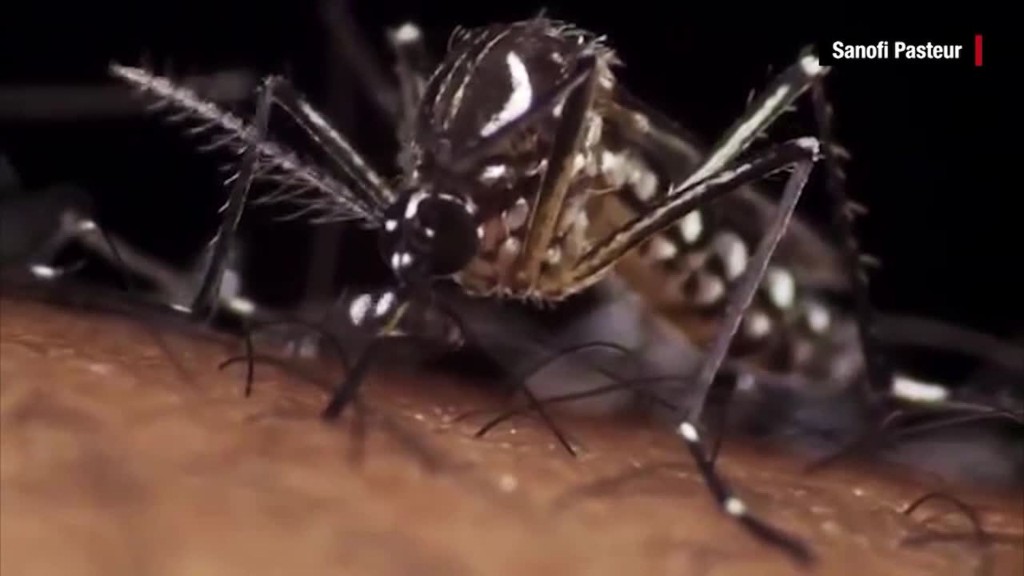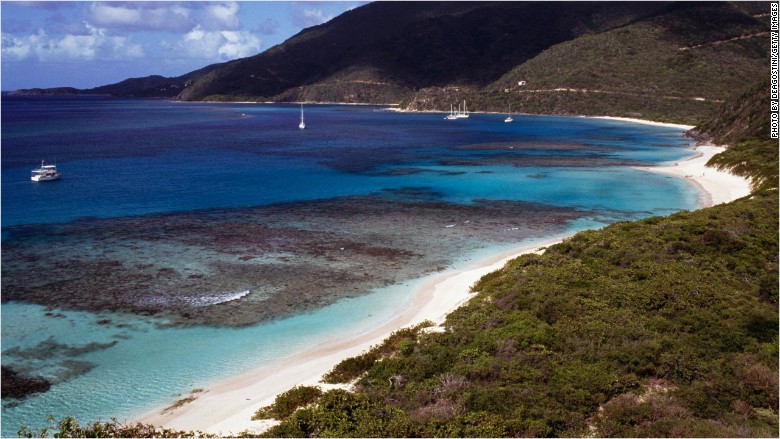
Popular tourist hotspots in the Americas are poised for trouble as the Zika virus threatens to scare away visitors.
There is currently no vaccine or medicine to treat Zika, a mosquito-borne virus that has spread across roughly 30 countries and territories in the Americas.
The Virgin Islands, Barbados and Jamaica in the Caribbean are most vulnerable because they rely on tourism to support their economies, according to data from the World Travel and Tourism Council.
For example, the Virgin Islands welcome nearly one million tourists each year, supporting roughly 30% of jobs on the islands. The British islands in the group are most at risk -- travelers support about 86% of economic activity in the area.
The U.S. Virgin Islands, by comparison, are less exposed to a downturn in tourism because it accounts for 30% of GDP.

In nearby Barbados, tourism underpins 37% of economic activity and supports more than a third of jobs on the island. The stats are similar in Jamaica, where about 28% of the economy is tied to tourism.
Related: Fighting the Zika virus with mutant mosquitoes
Scientists are still trying to understand more about the Zika virus, which has been linked to birth abnormalities and has been known to spread via sexual contact. Some women infected with the virus have given birth to babies with microcephaly, a disorder which leads to severe developmental issues and can be fatal.
However, most people that contract the virus have no symptoms, or experience only mild symptoms like fever, headache and rash.
Still, the World Health Organization has declared a "public health emergency of international concern" and the Centers for Disease Control are warning pregnant women to postpone or avoid travel to areas where they can contract Zika. Women trying to get pregnant are told to take precautions.
Related: Airlines letting staff members opt out of flights to Zika areas
"We likely will see a significant and sustained decline in trips by women who are pregnant or trying to conceive to these regions ... but this demographic represents a relatively small subset of total travelers," says Amanda Bourlier, an analyst at market research firm Euromonitor International.
Despite the limited fallout for now, some countries such as Mexico could suffer since it's a popular destination for "babymoon" trips, when couples take a vacation before the birth of a baby. About 15% of Mexico's economy is tied to tourism.
Brazil may have most to lose longer term because it expects the Olympic Games in Rio de Janeiro in August to provide a big boost to visitor numbers. Roughly six million international tourists visit Brazil each year, and tourism supports nearly 10% of the country's economy.


